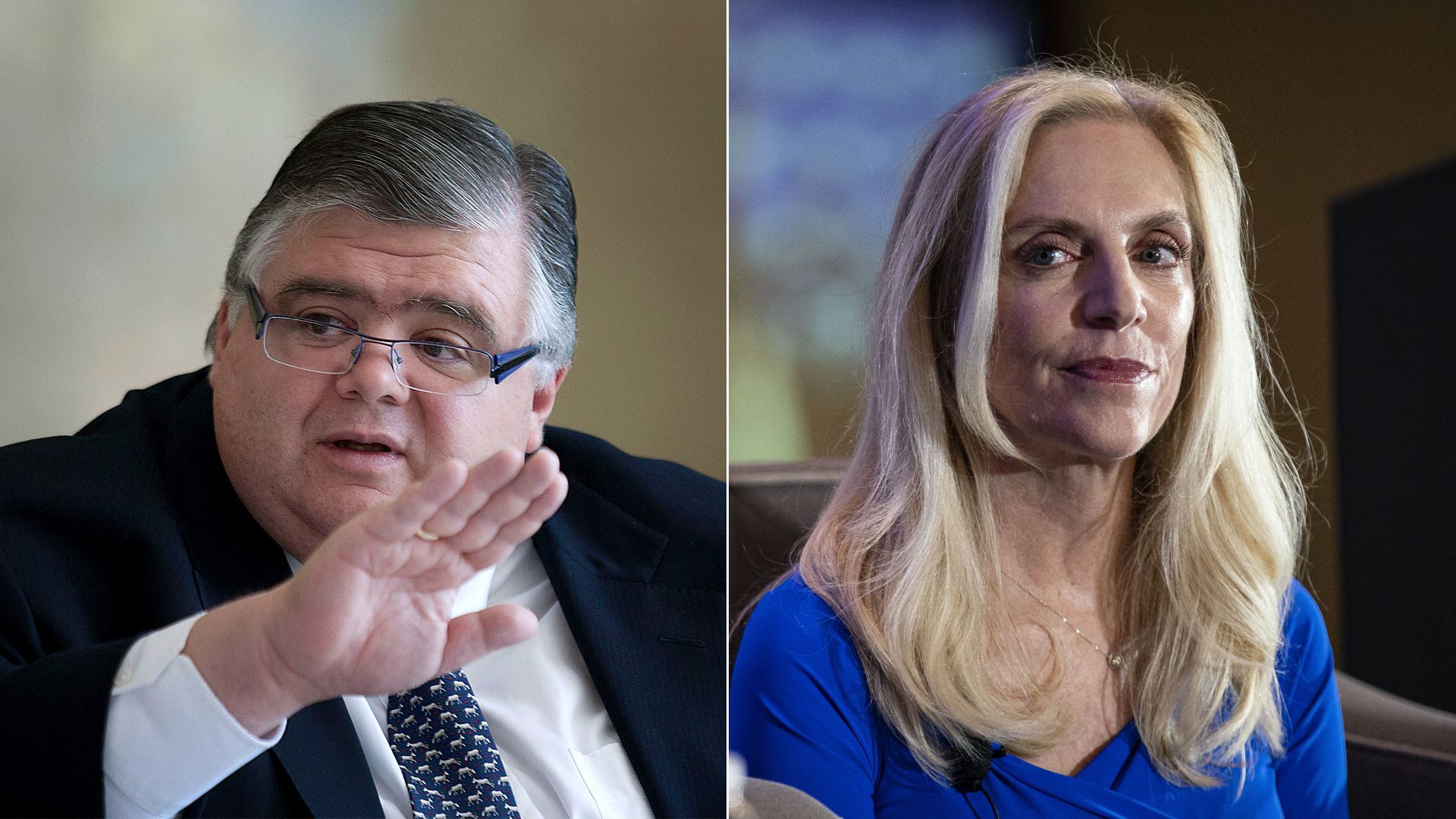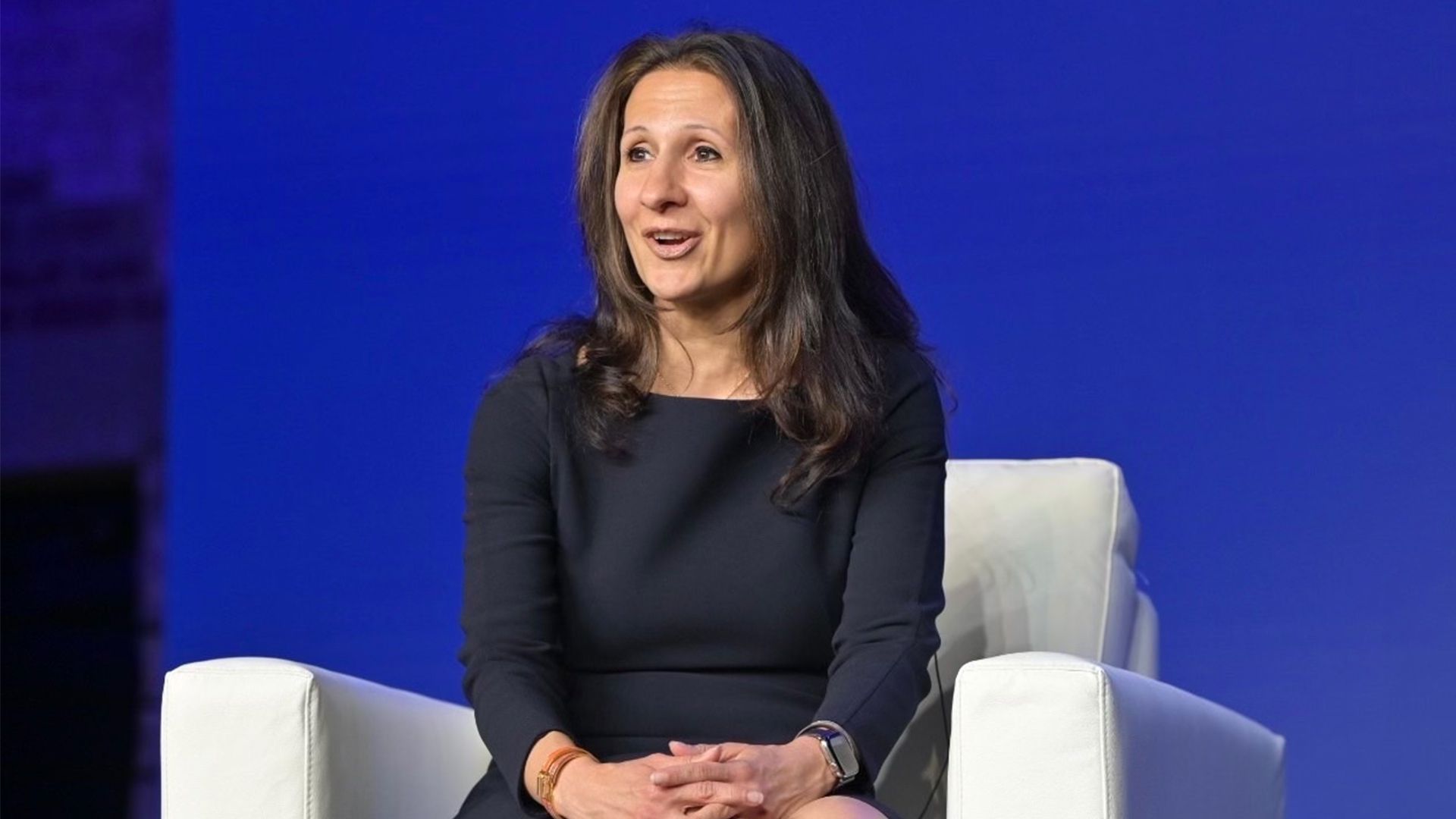| | | | | | | Presented By Ramp | | | | Axios Markets | | By Emily Peck and Matt Phillips ·Apr 06, 2022 | | 🤠 Howdy, Marketeers. Matt here. We're toying with the idea of starting an Axios Markets book club. Interested? This notion is still in the protoplasm stage ... would love to hear thoughts, suggestions, grave concerns, gentle warnings, sage counsels, etc. Oh, and below we're also talking union mojo, hawkish central bank heads and massive bond market moves. Boom. Boom. Today's newsletter is 1,079 words, 4 minutes. | | | | | | 1 big thing: A turning point for unions |  | | | Illustration: Lazaro Gamio/Axios | | | | Amazon workers' historic win last week in New York may wind up spurring union growth around the country after decades of decline, Emily writes. The big picture: A remarkable confluence of factors — including a pro-labor White House, a once-in-a-century pandemic, and a super-tight labor market — helped Amazon workers in Staten Island achieve a David and Goliath union victory, with almost no backing from traditional institutional labor. "It has electrified all of our members and organizing leaders," said Mary Kay Henry, president of the Service Employees International Union, which has 2 million members. - The new Staten Island Amazon union has been contacted by employees at 50 other buildings in the U.S., according to the organization's president and founder, Christian Smalls.
- Another Amazon warehouse across the street from Smalls' building has a union vote scheduled for April, said Seth Goldstein, the group's lawyer.
- A separate group of AmazonFresh employees — inspired by the Staten Island efforts — voted to unionize and are moving forward, he noted.
Other large employers are surely watching. - "If Amazon, the consummate on-top-of-things company, can get bested after spending $4 million last year on labor relations consultants, then other companies may be more vulnerable to organizing than they've long seemed," Josh Eidelson wrote in Bloomberg.
- Starbucks CEO Howard Schultz on Monday said the company was "being assaulted, in many ways, by the threat of unionization."
Between the lines: This wouldn't have happened without COVID-19. Smalls started organizing in protest of the warehouse's health and safety conditions during the pandemic. - The win also may not have happened if a different president was in the White House.
- One of the first things Biden did on Inauguration Day was fire the management-friendly general counsel of the National Labor Relations Board, ultimately replacing him with Jennifer Abruzzo, who's enforced the labor laws with a zeal not seen in a long time.
What's next: The vote was just the first step in a long process. Now the union must negotiate a first contract with Amazon, which will likely challenge the vote before they even get to the bargaining table. Even in a best-case scenario, that takes a year. - "That's the hard part," said Ana Avendaño, former AFL-CIO lawyer now teaching law at the University of Texas, Austin. Expect the union to look to negotiate over wages, scheduling, health care and safety, she added.
- Amazon didn't respond to questions and pointed Axios to an online statement.
Go deeper. |     | | | | | | 2. Catch up quick | | 🏦 U.S. and E.U. will further sanction Russian banks and state-owned enterprises. (CBS) 🚨 Treasury Secretary Janet Yellen to warn of the Ukraine war's major economic repercussions. (NYT) 📉 U.K. arm of sanctioned Russian bank VTB set to file for insolvency proceedings. (Bloomberg) |     | | | | | | 3. Inflation control is front and center |  | | | Bank for International Settlements general manager Agustín Carstens and Fed governor Lael Brainard. Photos: Susana Gonzalez/Bloomberg via Getty Images and Al Drago/Bloomberg via Getty Images | | | | Inflation has risen to multidecade highs in the U.S. and large parts of the world. The reckoning over why it happened and what central bankers should do about it is only beginning, Axios' Neil Irwin writes. - That's the takeaway from two speeches delivered yesterday on opposite sides of the Atlantic, both of which make clear the pressure facing central banks to clean up a mess they helped create.
Why it matters: Even monetary doves have concluded that the economy is at a delicate moment in which high inflation could become entrenched. That has created a new urgency to tighten monetary policy, itself a source of risk for markets and the economy. Driving the news: Speeches by Federal Reserve governor Lael Brainard and Bank for International Settlements chief Agustín Carstens show that inflation control has become the "paramount" concern of central banks, as Brainard put it. - Brainard emphasized that high inflation causes more financial distress for lower-income families, and offered a hawkish prescription for Fed action to counter it, including "methodically" raising interest rates and shrinking the Fed's balance sheet "considerably more rapidly" than in the last economic cycle.
- The latter comment fueled a massive bond sell-off, sending interest rates soaring (more on that below).
Beyond the tactical decisions the Fed and other central banks must make to try to bring demand in line with constrained supply, Carstens warned that the inflation problem might be no short-term blip. - "We should not expect inflationary pressures to ease soon," said Carstens — head of the Basel, Switzerland-based organization that is essentially the central bank of central banks — at a conference in Geneva. He added that "there are signs of inflation expectations coming unmoored."
- He said that "policymakers may need to shift their mindsets" and that the low-inflation environment gave central banks "great, if not unprecedented, leeway to place more weight on other objectives, be they growth, full employment or others further beyond their traditional remit."
The bottom line: The era of central banks having a free hand to stimulate growth without inflation showing up is long gone. And as yesterday's market action showed, the adjustment to this new world could be bumpy. |     | | | | | | A message from Ramp | | Stay ahead of the competition | | |  | | | | The future of finance is automation. But not all teams have adapted, or they don't properly leverage the technology. That's why finance automation platform Ramp interviewed more than 500 finance leaders to give your team the data and tools needed to advance. Download the report. | | | | | | 4. Charted: Bond yields go bonkers |  Data: FactSet; Chart: Axios Visuals About those soaring yields on long-term Treasuries ... the 10-year note jumped 0.14 percentage points yesterday after Fed governor Lael Brainard's speech — the latest in a series of wild swings in the normally staid market, Matt writes. Why it matters: The yield on government bonds like the 10-year note determines to a large extent the costs of borrowing throughout the economy. - For instance, it influences rates on anything from corporate borrowings in the bond market to consumer auto loans and credit cards.
Case in point: Yesterday's yield spike helped push mortgage rates higher. Mortgage News Daily's latest survey rate showed the 30-year fixed mortgage rose to 5.02%, from 4.84% on Monday. |     | | |  | | | | If you like this newsletter, your friends may, too! Refer your friends and get free Axios swag when they sign up. | | | | | | | | 5. NYSE president: IPO demand hasn't waned |  | | | New York Stock Exchange president Lynn Martin at Axios' What's Next Summit. Photo: Joy Asico for Axios | | | | Despite recent market volatility, demand for new public listings is still strong, New York Stock Exchange president Lynn Martin told Hope King at Axios' What's Next Summit yesterday. Catch up fast: There were 37 IPO deals that raised $2.4 billion during the first quarter of 2022, according to EY. - That's a decline of 72% in the number of deals and a 95% decline in proceeds from the same period a year ago.
The big picture: Geopolitical tensions introduced new risks to investors, who were already in the process of moving their holdings from riskier assets after a record year for IPOs and stock market returns. - Yes, but: The markets have come to understand that the tensions in Europe will be here to stay.
What they're saying: "The amount of firms we are pitching at the moment, the amount of firms that are queued up to come to market, as soon as volatility comes down, is significant," Martin said. |     | | | | | | A message from Ramp | | What finance teams are missing | | |  | | | | Too many businesses don't fully leverage their finance automation tools. Take note: Despite automating, only half of finance leaders have real-time visibility, and more than half report challenges with wasted spending. Learn how to achieve more. | | |  | It's called Smart Brevity®. Over 200 orgs use it — in a tool called Axios HQ — to drive productivity with clearer workplace communications. | | | | | | Axios thanks our partners for supporting our newsletters. If you're interested in advertising, learn more here.
Sponsorship has no influence on editorial content. Axios, 3100 Clarendon Blvd, Suite 1300, Arlington VA 22201 | | | You received this email because you signed up for newsletters from Axios.
Change your preferences or unsubscribe here. | | | Was this email forwarded to you?
Sign up now to get Axios in your inbox. | | | | Follow Axios on social media:    | | | | | |











No comments:
Post a Comment